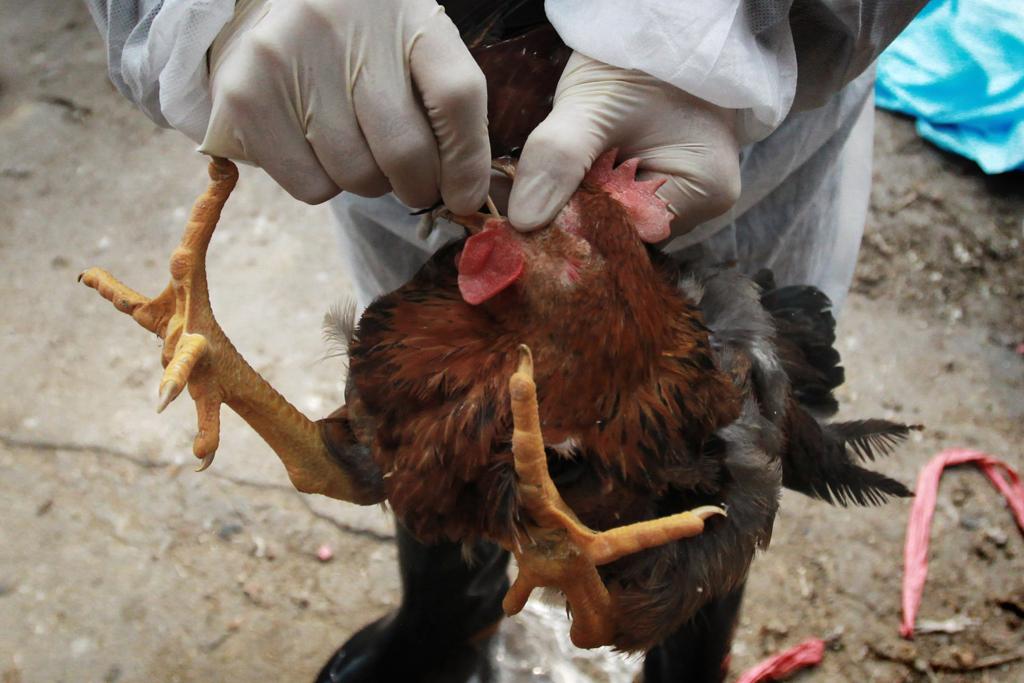China: Bird flu tally rises to 21
Health workers take swab sample from a chicken at Meijiang poultry wholesale market on April 8, 2013, in Changde, China.
HONG KONG — The latest news out of China relating to the bird flu seems heartening: the World Health Organization stated Monday that there is no proof that the H7N9 strain of the virus can be transmitted between humans, and Chinese authorities revealed that a 4-year-old Shanghai boy infected with bird flu had "basically recovered" — the first recorded for this strain of the disease.
On the less positive side, the overall toll of the virus has continued to rise. On Sunday, officials reported two new cases of bird flu infection in Shanghai and one in rural Anhui province, bringing the total number of infections to 21. Six people have died from H7N9 thus far.
Many in China have criticized the government for delaying the release of information about H7N9, as the first two infections dated to early February. On Sina Weibo, China's vibrant microblogging platform, netizens debated why officials had waited 20 days to reveal a bird-flu fatality.
"Shanghai only informed the public that a patient had died of H7N9 20 days after it happened, saying that detection takes time" wrote Godfrey Go. "I hope this is the real truth, and that we have learned the lessons of SARS."
Yet some experts praised Beijing's relative openness and transparency about the disease, particularly compared to the widespread stonewalling that occurred during the SARS epidemic, which killed nearly 800 people a decade ago.
Michael O'Leary, China head of the World Health Organization, had kind words for the government at a press conference in Beijing on Monday. "We are very satisfied and pleased with the level of information shared and we believe we have been fully updated on the situation," he said, according to AFP.
At the same press conference, Chinese health official Liang Wannian said that China was working on a vaccine for H7N9, but that it would not be ready for at least six months.
But in some quarters, the response to the health emergency has been less than level-headed. On Monday, hotheaded People's Liberation Army Col. Dai Xu accused the United States of conspiring to trick China into worry excessively about bird flu, and deploying so-called "bio-psychological weapons" against China — just as it had done, he said, during SARS.
"All of China fell into turmoil and that was exactly what the US wanted," he wrote on Weibo, as translated by South China Morning Post. "Now, the US is using the same old trick."
The bird-flu crisis presents a challenge and an opportunity for the administration of Xi Jinping to make good on his vow to increase government transparency and accountability to the people.
But as Beijing commentator Bill Bishop said, the public's lack of confidence in the Communist Party makes it extremely difficult for officials to count on people's trust.
"The government is in a difficult position. Few believe it will be transparent, and if it is then many will assume the situation must be even worse than it is. How do you manage pandemic fears in the social media age, especially when your track record of information management has led to a credibility crisis?"
Every day, reporters and producers at The World are hard at work bringing you human-centered news from across the globe. But we can’t do it without you. We need your support to ensure we can continue this work for another year.
Make a gift today, and you’ll help us unlock a matching gift of $67,000!
